This repository/course provides the theoretical and descriptive foundations for the investigation and solution of language-related problems, especially those of language use, but also problems of psycholinguistics, sociolinguistics, forensic linguisics and historical linguistics. As a consequence, VLC300 tends to be interdisciplinary in many ways.
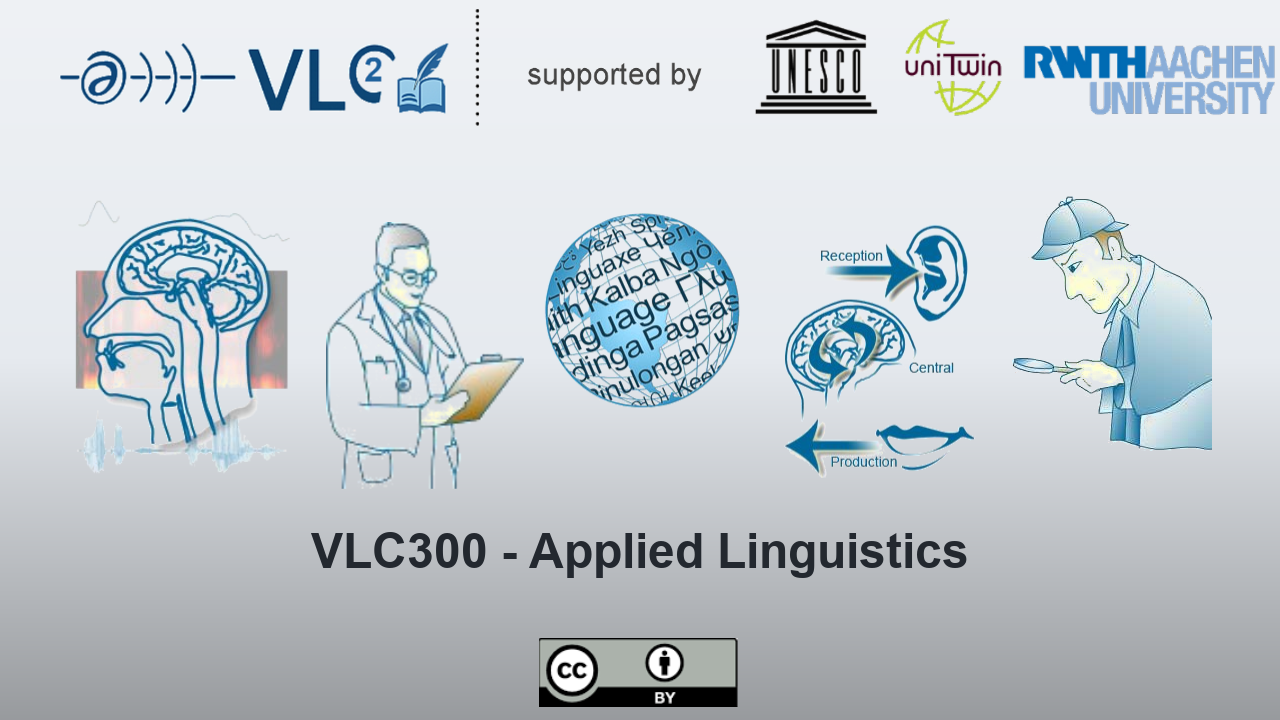
The hybrid name psycholinguistics reflects a truly interdisciplinary endeavour.
- Linguists are engaged in the formal description of language
- Psycholinguists attempt to discover how the underlying structures are used in the processes of speaking, understanding and remembering, and how they are acquired by children.
These insights determine the way in which this class is organized: Part I discusses central issues in speech production and perception. Part II deals with the most important aspects of language acquisition. The third part is dedicated to some selected aspects of neurolinguistics and cognitive linguistics.
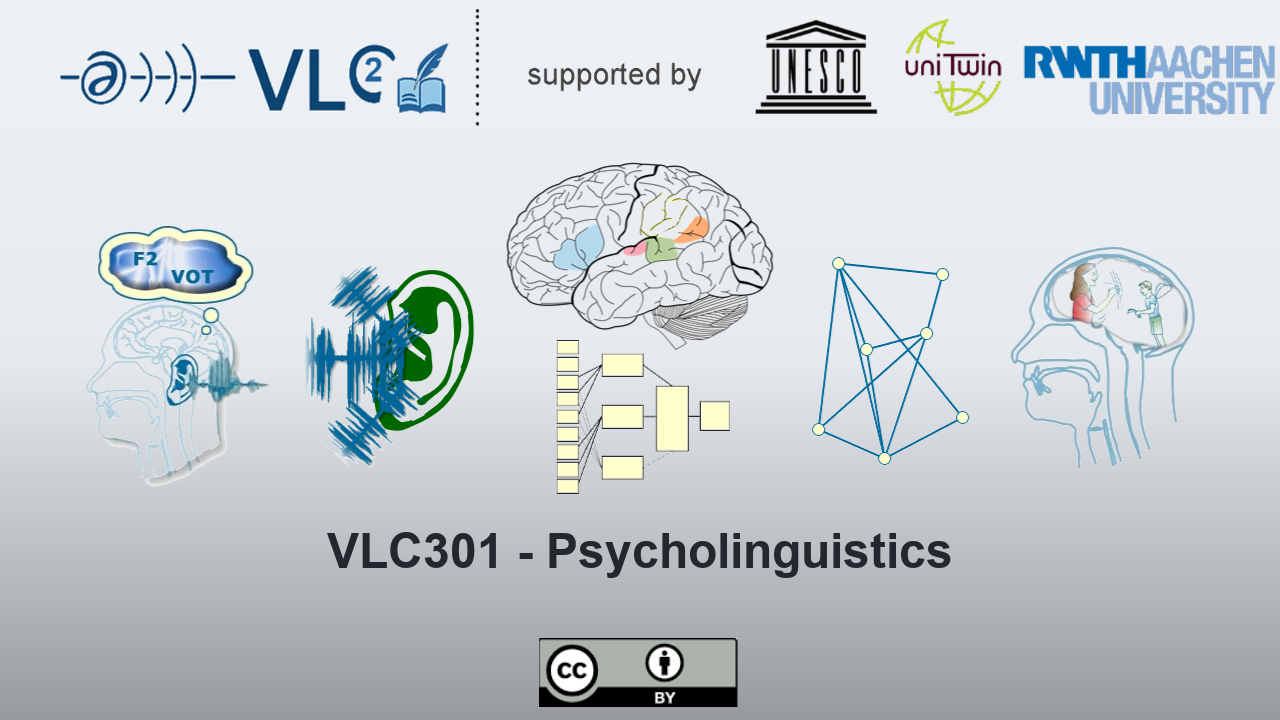
This course aims to familiarize students with the principles and methods of corpus linguistics, a field that studies language through large collections of texts (corpora). The course covers topics such as corpus design, text collection, annotation, and analysis. Students learn to use software tools for corpus analysis and explore linguistic patterns in data. The goal is to equip learners with skills to conduct empirical research on language usage, enabling them to understand language variation, change, and the practical applications of corpora in areas such as language teaching, lexicography, and natural language processing.
VLC302 consists of seven units and provides the theoretical and practical foundations for two continuations:
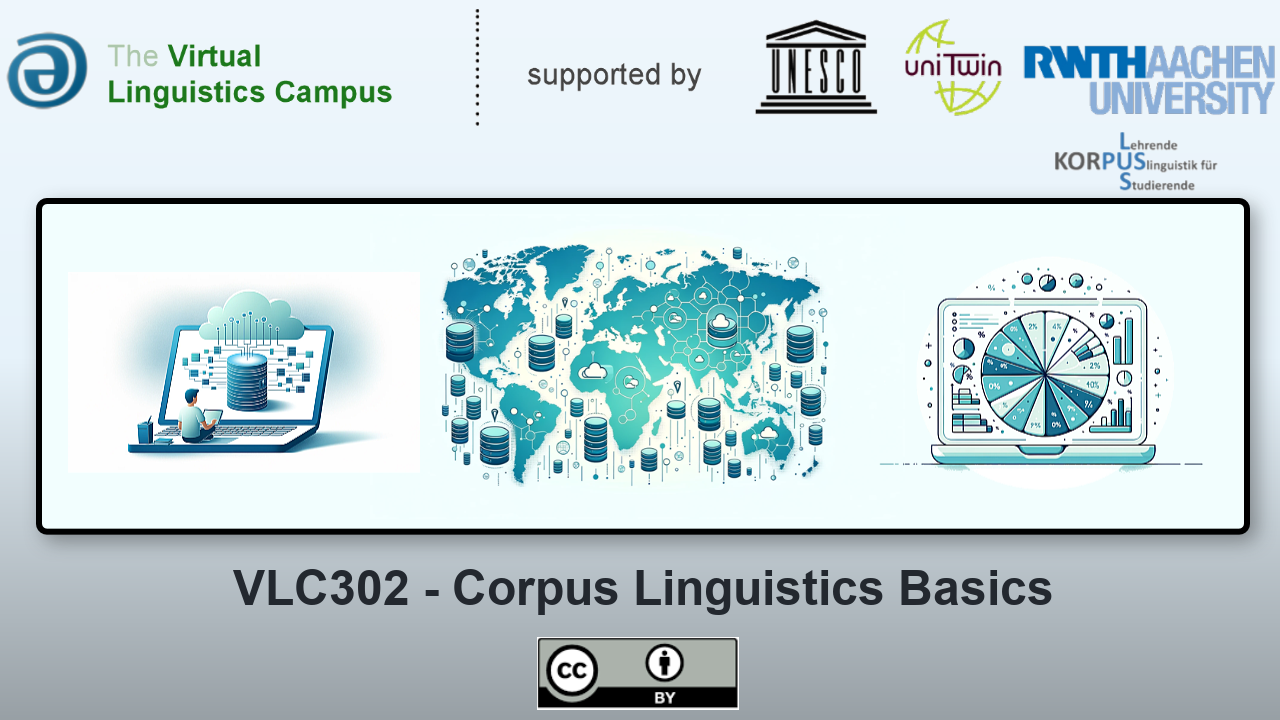
- Teacher: Katharina Deckert
- Teacher: Julia Schlüter
VLC303 is aimed at integrating empirical, data-driven methodologies with theoretical linguistic analysis. In particular, enhancing the understanding of linguistic theory through empirical evidence from corpus data, identifying and interpreting patterns, trends, and anomalies in language use and investigating language variation across different contexts, genres, and time periods.
Prerequisite for participation in VLC303 is the successful completion of "VLC302 - Corpus Linguistics Basics".
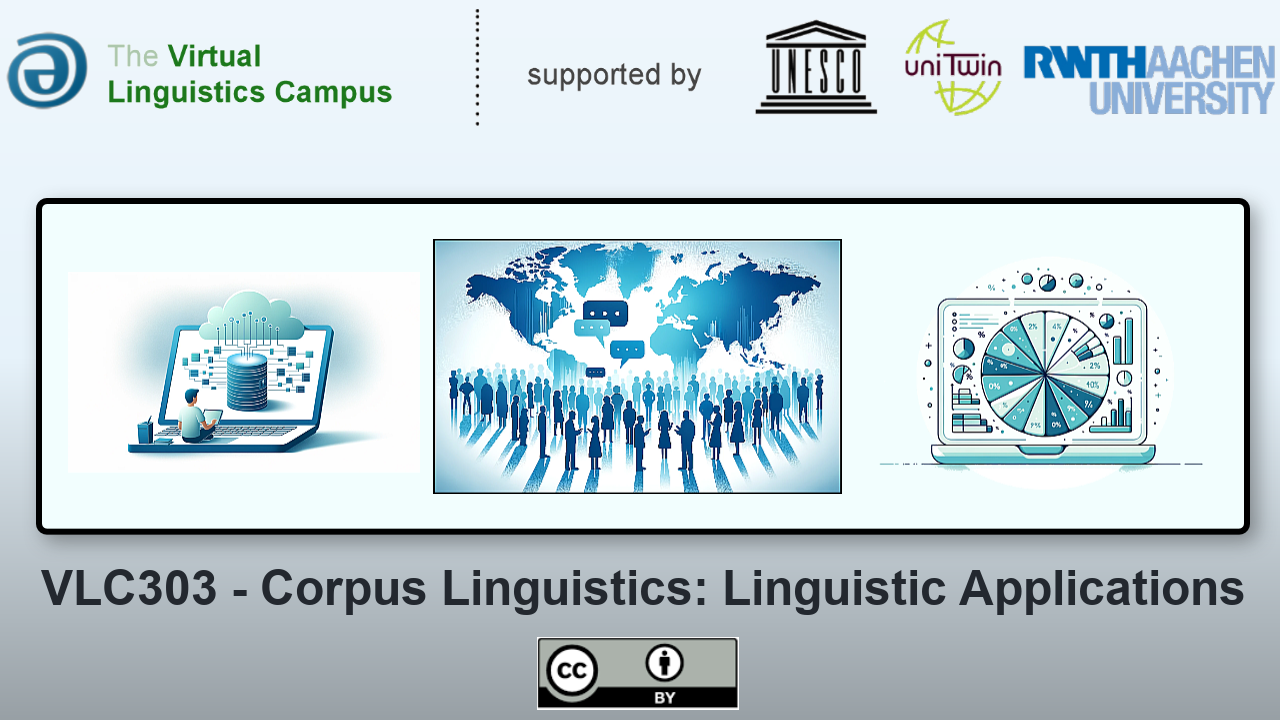
VLC304 aims at combining empirical, data-driven methodologies with the principles of teaching English as a foreign language. In particular, enhancing language use through empirical evidence from corpus data, identifying and interpreting patterns, trends, and anomalies in language use and investigating language variation across different contexts, genres, and time periods.
A prerequisite for participation in VLC304 is the successful completion of "VLC302 - Corpus Linguistics Basics".
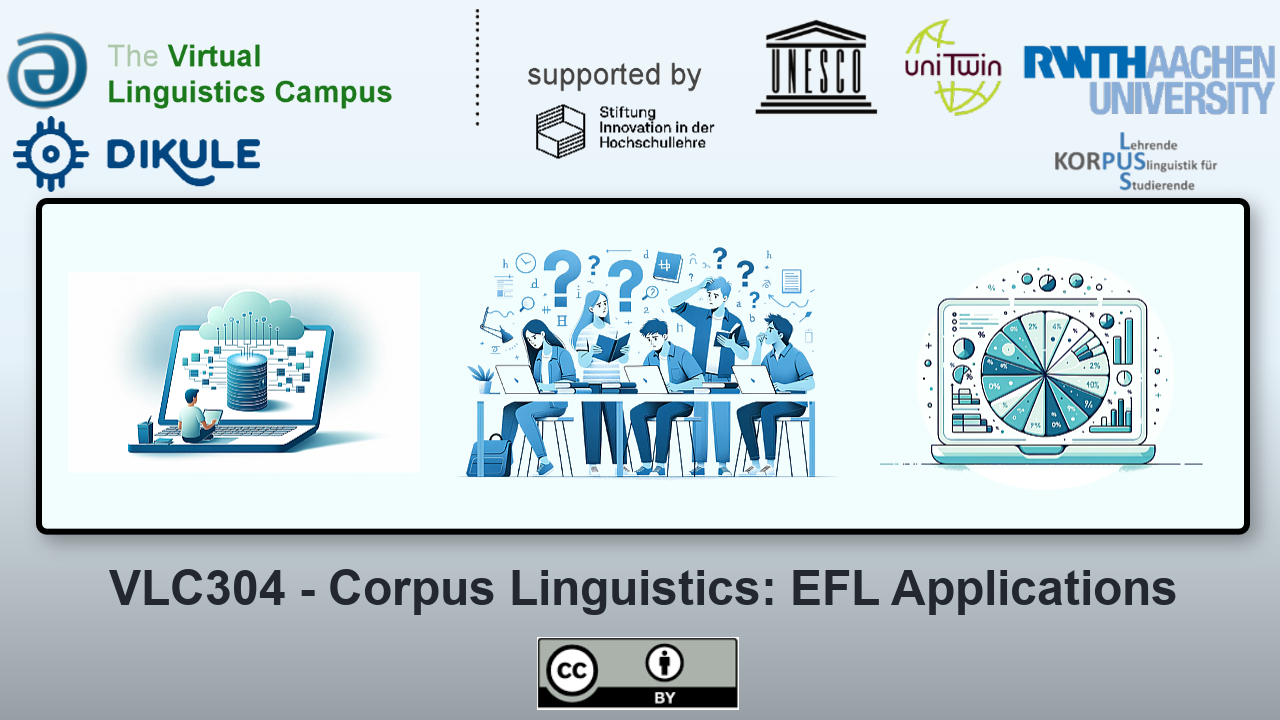
- Teacher: Katharina Deckert
- Teacher: Julia Schlüter
VLC305 aims at providing learners of English as a foreign language with knowledge about corpora and corpus linguistics, basic skills in conducting corpus queries, and practical applications for using corpora for typical everyday language problems. Participants will be given theoretical knowledge regarding six areas that are typically difficult for learners of the English language. Furthermore, they will then be shown concrete writing problems in these areas and guided through conducting corpus analyses to solve these problems.
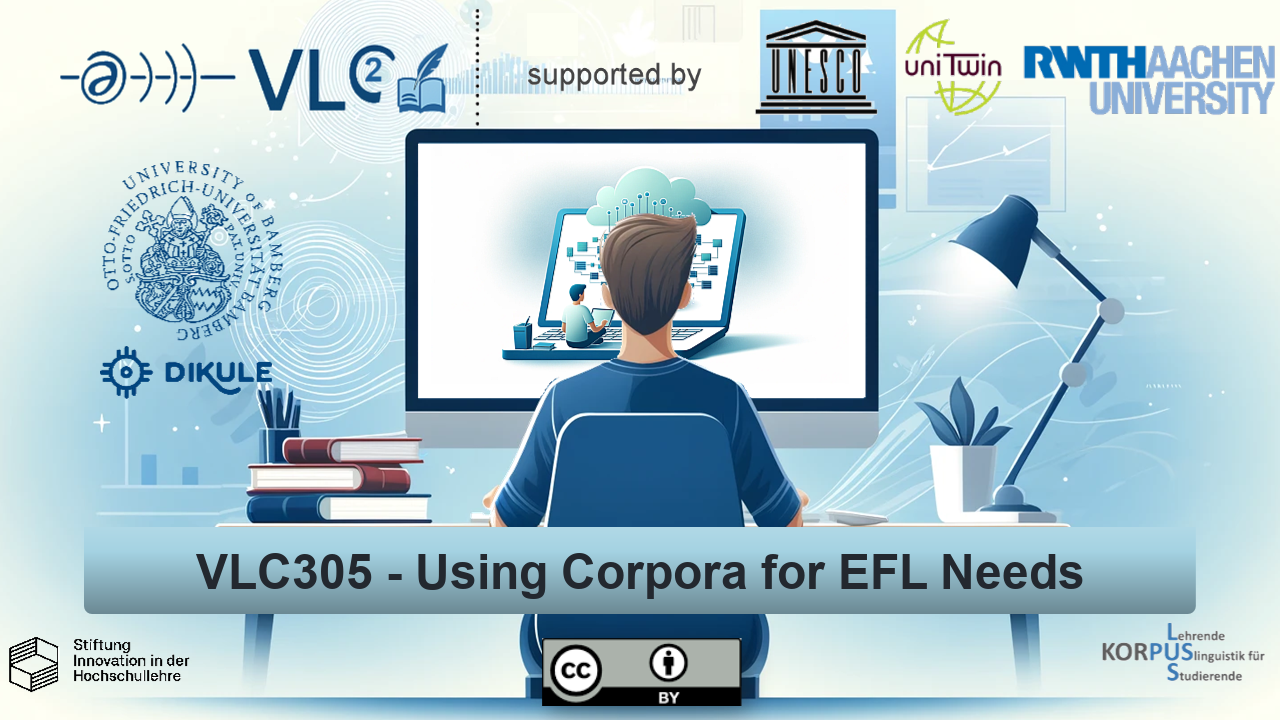
- Teacher: Katharina Deckert
- Teacher: Philipp Runge
- Teacher: Julia Schlüter
